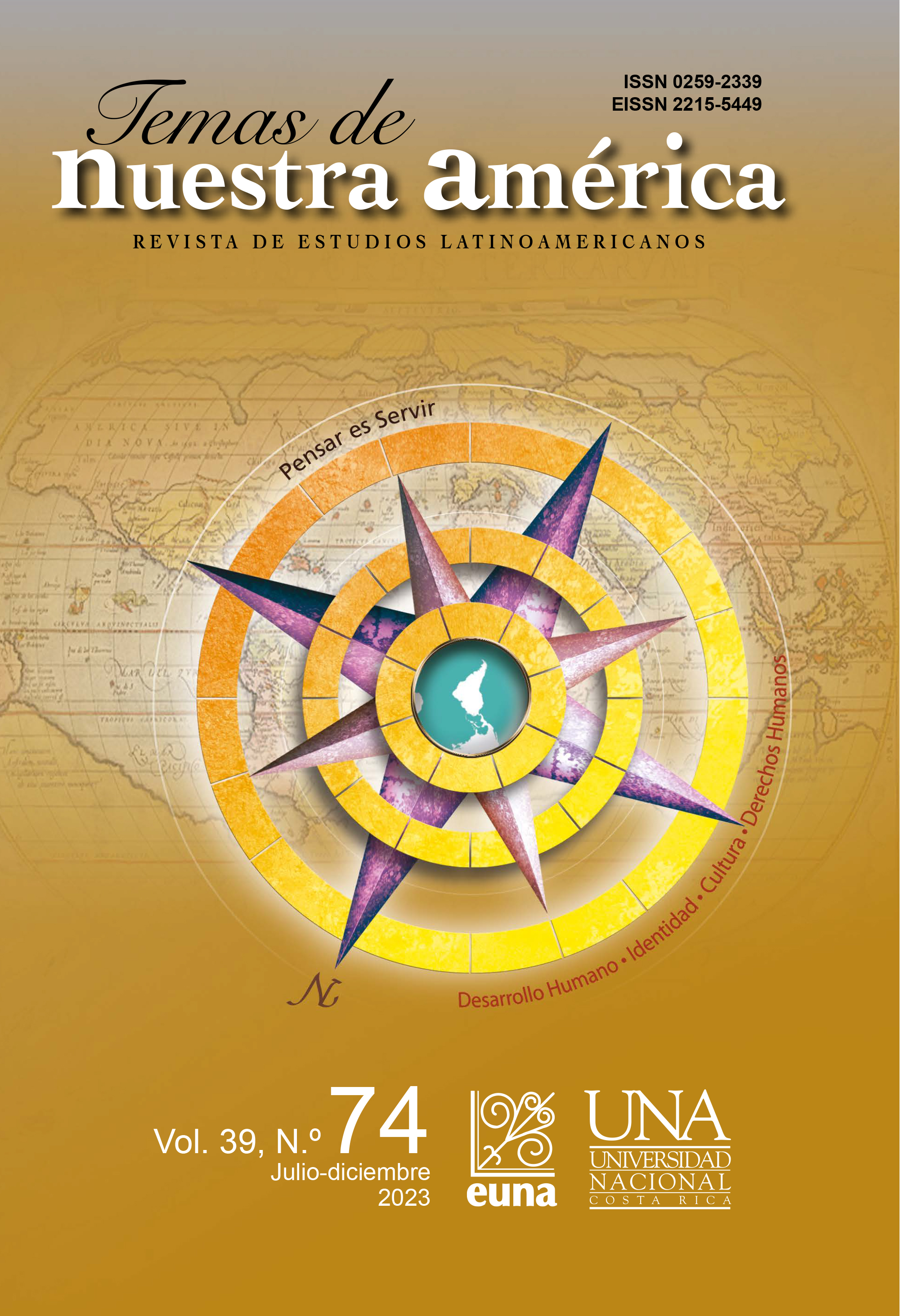Un estudio comparado de la voz femenina en la poesía del pueblo marginado del sur global
DOI:
https://doi.org/10.15359/tdna.39-74.4Abstract
This article delves into the authentic experiences of Afro-Caribbeans in the Hispanic Caribbean and Dalits in India, whose voices have risen as marginal literature on the global surface. The structures of socioeconomic, cultural, and political oppression that define their identities in their respective societies are examined, highlighting the protest poetry of Nancy Morejón and Excilia Saldaña in the Hispanic Caribbean, and Sushila Takabhore, Nirmala Putul, and Anita Bharti in India. These poets shed light on the discrimination based on race and caste that complicate the lives of those who are marginalized.
The oppression faced by Afro-Caribbean and Dalit women is explored, using the theory of five faces of oppression to theorize the problem. This theory, posited by Iris Marion Young, includes Exploitation, Marginalization, powerlessness, Cultural Imperialism, and Violence. The article also delves into the debate between Gayatri Chakravorty Spivak and Roberto Fernández Retamar (Caliban) about whether the subaltern can speak and how they can acquire their own voice. Retamar's book, Caliban and other essays (1979), provides a response to Spivak’s argument about how the subaltern can use language to acquire a voice.
References
CEPAL. (2018). Mujeres afrodescendientes en América Latina y el Caribe: deudas de igualdad. Publicación de las Naciones Unidas LC/TS.2018/33, julio de 2018.
Gupta, Ramanika. Aab Murakh Nahi Banenge Hum, Delhi: Abhiruchi Prakashan. (1997).
Saldaña, Excilia. (2003). Mi Nombre, Ediciones Unión, Cuba, 2003.
Takbhore, Shushila. (2005). El sol de nuestra parte, Swaraj Prakashan, New Delhi.
Takbhore, Shushila. (1994). También sabedlo esto, Sharad Publication, Nagpur.
Young, Iris Marion. (1990). Justice and politics of difference, Princeton University Press.
Enlaces consultados
https://www.legalserviceindia.com/legal/article-9786-manu-s-laws-and-social-order.html consultado el 27/3/23.
http://kavitakosh.org/kk/%E0%A4%AE%E0%A4%BE%E0%A4%B8%E0%A5%82%E0%A4%AE_/_%E0%A4%85%E0%A4%A8%E0%A4%BF%E0%A4%A4%E0%A4%BE_%E0%A4%AD%E0%A4%BE%E0%A4%B0%E0%A4%A4%E0%A5%80 consultado el 26/3/23.
http://kavitakosh.org/kk/%E0%A4%AE%E0%A4%BF%E0%A4%9F%E0%A5%8D%E0%A4%9F%E0%A5%80_/_%E0%A4%85%E0%A4%A8%E0%A4%BF%E0%A4%A4%E0%A4%BE_%E0%A4%AD%E0%A4%BE%E0%A4%B0%E0%A4%A4%E0%A5%80 consultado el 25/3/23.
https://negracubanateniaqueser.com/somos-negras-cubanas/mujer-negra-de-nancy-morejon/ consultado el 27/3/23.
Downloads
Published
How to Cite
Issue
Section
License
Esta obra de Revista Temas de Nuestra América está bajo una Licencia Creative Commons Atribución-NoComercial-SinDerivar 4.0 Internacional.
Cualquier permiso que trascienda dicha licencia, debe solicitarse por escrito a la persona directora de la Revista










